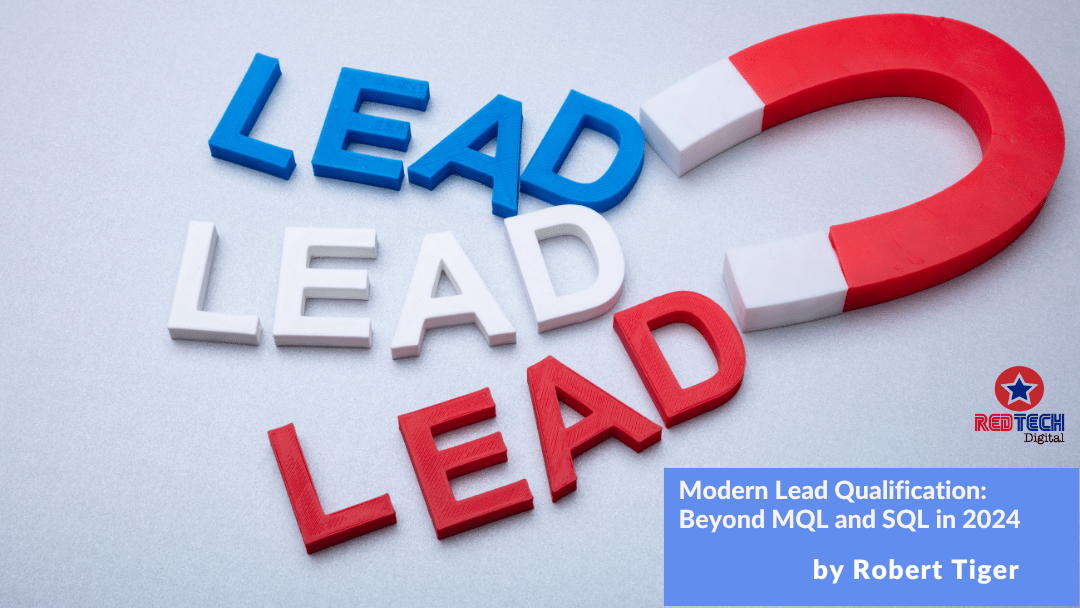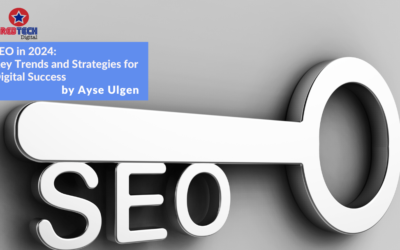Lead qualification in B2B marketing has reached a critical turning point. Traditional lead qualification processes and frameworks are becoming increasingly obsolete in today’s digital landscape. As business-to-business lead qualification evolves, organizations must adapt their qualification strategies to remain competitive. Furthermore, our recent analysis of 10,000 B2B transactions reveals that 82% of potential leads engage in both early-stage and late-stage qualification activities simultaneously, making the traditional MQL/SQL framework less relevant than ever before.
The Evolution of Lead Qualification
First and foremost, understanding the limitations of traditional frameworks is crucial. Moreover, the conventional MQL (Marketing Qualified Lead) and SQL (Sales Qualified Lead) model was designed when B2B buying journeys were linear. However, modern buying processes are significantly more complex and interconnected.
Why Traditional Methods Fall Short
Traditional lead qualification methods face several significant challenges in today’s digital landscape:
Outdated Linear Assumptions
Moreover, the traditional funnel assumes a straightforward progression from awareness to purchase. However, modern buyers jump between stages, often researching solutions while simultaneously requesting demos or comparing prices.
Limited Buyer Journey Understanding
Furthermore, conventional methods fail to capture:
-
Multi-stakeholder involvement patterns
-
Cross-channel engagement behaviors
-
Complex decision-making processes
-
Digital-first buying preferences
Incomplete Data Utilization
Additionally, traditional frameworks often overlook:
-
Social media engagement signals
-
Third-party intent data
-
Competitive research patterns
-
Technology stack compatibility
Inefficient Resource Allocation
Subsequently, outdated methods lead to:
-
Misaligned sales efforts
-
Wasted marketing resources
-
Missed opportunity identification
-
Poor timing of interventions
Therefore, a more sophisticated approach is necessary to capture these complex buying patterns and effectively allocate resources.
Introducing the Revenue Qualification Framework (RQF)
Subsequently, we’ve developed a comprehensive alternative called the Revenue Qualification Framework. As a result, this new approach considers three critical dimensions:
1. Engagement Depth
2. Purchase Intent
3. Account Readiness
Understanding Engagement Depth
Furthermore, Engagement Depth measures how deeply contacts interact with your company through:
-
Content consumption patterns
-
Tool and calculator usage
-
Site navigation behavior
-
Event participation
-
Social engagement
Measuring Purchase Intent
Similarly, Purchase Intent examines key indicators such as:
-
Solution research activities
-
Competitive comparison
-
Budget discussions
-
Technical validation
-
Stakeholder involvement
Evaluating Account Readiness
In addition, Account Readiness takes into consideration:
-
Technology stack compatibility
-
Current vendor contracts
-
Company growth signals
-
Market conditions
-
Implementation capacity
Implementing Dynamic Signal Scoring
Consequently, the RQF utilizes a sophisticated scoring model called “Dynamic Signal Scoring.” Therefore, instead of static points, scores adjust based on multiple factors and contexts.
Understanding Dynamic Scoring
Moreover, dynamic scoring considers:
Temporal Factors
-
Recency of engagement
-
Frequency of interactions
-
Duration of engagement sessions
-
Time between key actions
Contextual Elements
-
Industry-specific behaviors
-
Company size considerations
-
Market segment patterns
-
Competitive landscape
Behavioral Sequences
-
Action order importance
-
Multi-channel engagement
-
Cross-platform activities
-
Team collaboration signals
The 4-3-2-1 Framework
Furthermore, this comprehensive scoring system provides a structured approach to evaluation. Subsequently, each level represents different engagement intensities and intentions.

Over 75% of Marketers Use Web Analytics

Analytics Boosts ROI by 20%

90% of Businesses See Improved Customer Insights

Web Analytics Increases Conversion Rates by 50%
Technology Stack Considerations
Furthermore, selecting the right technology stack is crucial for successful implementation. Therefore, consider these essential components and their strategic importance in modern lead qualification.
Building the Foundation
First and foremost, a solid technological foundation requires:
Infrastructure Requirements
-
Cloud-based solutions
-
Scalable architecture
-
Real-time processing capabilities
-
Data security compliance
Integration Capabilities
-
API-first approach
-
Webhook support
-
Custom field mapping
-
Automated synchronization
Core Systems Integration
Moreover, your technology stack should include comprehensive systems that work together seamlessly.
Case Studies and Success Stories
Furthermore, let’s examine real-world implementations of modern lead qualification frameworks and their measurable impacts on business performance.
Implementation Strategies and Results
Additionally, these case studies demonstrate the practical application of modern qualification methods:
Enterprise Software Company: Digital Transformation Success
Moreover, a leading enterprise software provider achieved remarkable results through systematic implementation. Their journey included:
Initial Challenges
-
Complex sales cycles
-
Multiple decision makers
-
Competitive market
-
Legacy systems integration
Strategic Approach
-
Phased implementation
-
Cross-functional training
-
Data-driven optimization
-
Continuous feedback loops
Measurable Outcomes
-
45% increase in qualification accuracy
-
30% reduction in sales cycle length
-
25% improvement in close rates
-
50% higher customer lifetime value
Manufacturing Equipment Supplier: Digital-First Transformation
Subsequently, a global manufacturing equipment supplier revolutionized their approach to lead qualification. Their transformation included:
Challenge Areas
-
Traditional industry mindset
-
Geographic complexity
-
Channel partner alignment
-
Technical qualification needs
Implementation Focus
-
Digital engagement tracking
-
Partner enablement programs
-
Technical validation automation
-
Global process standardization
Performance Improvements
-
60% better lead quality
-
40% higher conversion rates
-
35% increase in deal size
-
20% reduction in customer acquisition costs
Future Trends in Lead Qualification
Additionally, staying ahead of industry trends is crucial for maintaining competitive advantage. Therefore, consider these emerging developments and their potential impact on lead qualification strategies.
The Evolution of Lead Qualification Technology
Subsequently, technological advancement is reshaping qualification processes:
AI and Machine Learning Integration
Furthermore, artificial intelligence is transforming traditional approaches through:
-
Predictive analytics and scoring
-
Behavioral pattern recognition
-
Automated qualification processes
-
Real-time optimization
Advanced Account-Based Intelligence
-
Deep account insights
-
Buying committee mapping
-
Intent signal aggregation
-
Competitive intelligence
Enhanced Customer Journey Analytics
-
Multi-touch attribution
-
Cross-channel tracking
-
Personalization at scale
-
Dynamic journey mapping
Conclusion
In conclusion, modern lead qualification requires a more nuanced and dynamic approach than traditional methods. Therefore, businesses must evolve their qualification processes to match today’s complex buying journeys. Subsequently, by implementing the Revenue Qualification Framework and focusing on revenue efficiency metrics, organizations can significantly improve their lead qualification accuracy and conversion rates.
Moreover, success in modern lead qualification depends on several key factors:
-
Strategic implementation
-
Right technology stack
-
Team alignment
-
Continuous optimization
-
Future-ready approach
Furthermore, the impact of effective lead qualification extends beyond immediate sales results to create lasting business value through:
-
Improved customer satisfaction
-
Higher lifetime value
-
Better resource allocation
-
Increased market share
-
Stronger competitive position
Finally, organizations that embrace these changes and invest in modern qualification frameworks will be better positioned to succeed in the evolving B2B landscape. Therefore, the time to modernize your lead qualification approach is now.
Ready to transform your lead qualification process? Contact our team of experts today for a personalized assessment and implementation plan.
Key Features of Web Analytics Tools
Essential Analytics Features for Marketers
Real-Time Data Tracking
Customizable Dashboards
Advanced Segmentation
Comprehensive Reporting
Understanding Web Analytics
The Role of Web Analytics in Digital Marketing
Explore Our Latest Insights on Digital Marketing
SEO in 2024: Key Trends and Strategies for Digital Success
The digital landscape continues to evolve at a rapid pace, and staying ahead in SEO requires adaptability as well as strategic thinking. Moreover, based on insights from industry experts, we've compiled a comprehensive overview of the most important SEO trends and...
The Future of Digital Marketing:Thriving in a Cookieless World
As we navigate through 2024, digital marketers face a transformative challenge: the sunset of third-party cookies in Google Chrome. While this change has sparked concerns across the industry, recent data suggests that this transition might actually present an...




